Federal Investigations Reveal Academic Backstabbing at Purdue University (Part 10)
More Accusations
Tsoukalas contacted Adams on Sept. 1, 2008, according to additional FOIA-obtained e-mails, and requested that she visit Purdue. He told her that the faculty of the school thought the sanctions against Taleyarkhan were too light and that professors in the school wanted to talk to her.
“I know that retaliations are not within the IG’s area,” Tsoukalas wrote, “and hence do not know if this is appropriate, or even possible, but maybe something to discuss, no?”
Adams replied the next day.
“Let me have a day to catch up here, and let’s talk,” Adams wrote. “There may be some strategies available that we haven’t explored.”
On Sept. 18, 2008, according to additional FOIA-obtained documents, Putterman complained to Adams about a $1.4 million National Science Foundation grant Taleyarkhan was awarded on Sept. 4.
On Sept. 22, 2008, Adams visited Purdue. She interviewed Dunn and two other people.
In a telephone conversation with New Energy Times on Feb. 13, 2009, Adams suggested that part of her visit to Purdue in September 2008, was to investigate Xu and Butt.
“Butts, Xu,” Adams said, “they’re not clean. If they didn’t see it and said they did, they lied. It’s a concern. It takes more than just one, so if Taleyarkhan did something wrong, then they did, too.”
On Nov. 5, 2008, Adams wrote to Dunn and expressed her concern that the NSF grant violated the spirit of Purdue’s sanctions. Purdue put the NSF award on hold after $185,000 had been awarded.
More Punishment
By Jan. 6, 2009, Adams and her associates at the Office of Naval Research decided that Purdue’s sanctions were inadequate. She wrote a draft of a recommendation that Taleyarkhan be further punished with a government-wide debarment and sent it the Office of Naval Research’s legal counsel and public affairs office.
On Jan. 16, 2009, her recommendation was approved by her supervisor, Walter F. Jones, the executive director of the Office of Naval Research. Jones, in turn, prepared a Memorandum for the Department of the Navy Suspending and Debarring Official, based on Adams’ draft letter.
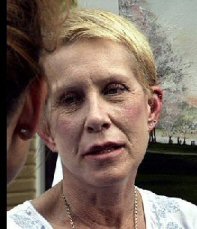
Holly Adams
A month later, Adams admitted to New Energy Times that she never did her own investigation. Instead, she performed a perfunctory check to see that Purdue followed its written procedures. She also told New Energy Times that she never interviewed Taleyarkhan.
In order for the Navy’s debarment to have legal force, the alleged infraction had to be tied to Navy funding. Jones’ memo recommending debarment therefore began with a reference to the DARPA/ONR-sponsored replication attempt by Putterman at UCLA. However, the alleged infractions for which Purdue charged Taleyarkhan had nothing to do with that grant or project.
“On 1 March 2005,” Jones wrote, “ONR awarded grant N00014-05-1-0459 to UCLA to attempt to duplicate Dr. Taleyarkhan’s finding of sonofusion when he was at Oak Ridge National Laboratory. … The grant proposal required the active participation of Dr. Taleyarkhan in creating a ‘mirror’ experiment in order to independently confirm his previous scientific findings related to sonofusion. Therefore, UCLA executed a sub-grant to Purdue to support this cooperation. The ‘mirror’ experiment was conducted by UCLA, with the result that Dr. Taleyarkhan’s initial findings could not be duplicated or confirmed.”
Jones’ memo implied that Taleyarkhan was responsible for Putterman’s failure to replicate.
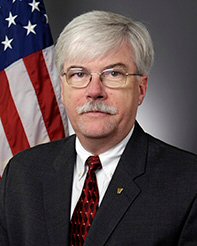
Walter F. Jones
Jones concluded his letter with personal comments about Taleyarkhan.
“[Taleyarkhan’s] substantiated misconduct violations demonstrate a lack of honesty and integrity necessary to do business responsibly with the government,” Jones wrote, “and, therefore, Dr. Taleyarkhan should be debarred to protect the interests of the government.”
On Feb. 2, 2009, Holly Adams transferred Jones’ recommendation along with nine documents to the Navy’s Acquisition Integrity Office, which was responsible for carrying out the debarment.
Twenty-four hours later, the Navy’s Acquisition Integrity Office initiated the debarment procedure.
On Feb. 3, 2009, Joseph K. Moore, associate counsel for the Navy’s Acquisition Integrity Office, copied and paraphrased sections of Jones’ memo and prepared a Memorandum for the Department of the Navy Suspending and Debarring Official for his supervisor, Mark Wilkoff, the Navy suspending and debarment officer.
At the end of his letter, Moore expanded the personal comments about Taleyarkhan.
“Dr. Taleyarkhan’s actions indicate a lack of business integrity or business honesty that seriously and directly affects his present responsibility to participate in the United States Government non-procurement process,” Moore wrote. “These causes are serious enough to warrant debarment because they are based upon the willingness of Dr. Taleyarkhan to engage in fraudulent, unethical and dishonest business practices.”
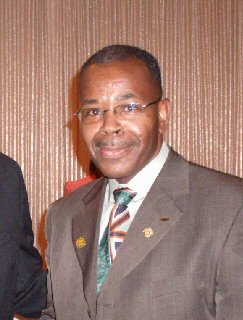
Joseph K. Moore
No investigation had ever found Taleyarkhan guilty of fraud. New Energy Times spoke with both Moore and Wilkoff in March 2009. Neither had performed any investigation; each of them simply took the memo he received from Adams, modified it slightly, and put it on his own letterhead. Adams also gave Moore and Wilkoff nine documents, which, according to Moore’s letter, composed the Navy’s entire administrative record on the case.
“The Administrative Record,” Moore wrote, “contains evidence sufficient to support the debarment of Dr. Rusi Taleyarkhan under 2 C.F.R. Part 180.800(b)(I) and (d). Dr. Taleyarkhan’s research misconduct in connection with an ONR grant demonstrates a lack of the business honesty and integrity necessary to do business responsibly with the Government. Therefore, Dr. Taleyarkhan should be debarred to protect the interests of Government.”
The same day, Wilkoff wrote to Taleyarkhan and advised him of his pending debarment.
“On behalf of the Department of the Navy,” Wilkoff wrote, “I am initiating debarment action against you as of the date of this letter. Based upon my review of the entire Administrative Record, which includes the four enclosed Memorandum for the Department of the Navy Suspending and Debarring Official, I find the facts to be as stated in the enclosed Memoranda, and I further find that the facts support cause to debar you.”
Here are the documents that compose, according to Wilkoff and Moore, the entire administrative record and on which the Navy’s Acquisition Integrity Office made its decision:
1. “Memorandum for the Proposed Debarment of Rusi Taleyarkhan,” by Joseph Moore, Feb. 3, 2009
2. “Report of the Investigation Committee in the Matter of Dr. Rusi P. Taleyarkhan,” Purdue University, Final Report of C-2 2 Investigation Committee, April 18, 2008
3. ONR Award Paperwork for Award No. N00014-0 5-1-0459 Issued to The Regents of the University of California Los Angeles, CA, awarding $812,000 in response to the Proposal titled ‘Using Acoustic Cavitation to Produce Thermonuclear Fusion,’ Dec. 23, 2004, with Seth Putterman identified as the Principal Investigator
4. “Evidence for Nuclear Emissions During Acoustic Cavitation,” by Rusi P. Taleyarkhan, et al., Science, 2002
5. “Additional Evidence of Nuclear Emissions During Acoustic Cavitation,” by Rusi P. Taleyarkhan, et al., Physical Review E, 2004.
6. “Confirmatory Experiments for Nuclear Emissions During Acoustic Cavitation,” by Yiban Xu and Adam Butt, Nuclear Engineering and Design, 2005
7. “Purdue Findings Support Earlier Nuclear Fusion Experiments,” Purdue University press release, July 12, 2005
8. Letter from Martin Bertadano to Leah Jamieson, September 12, 2006
9. E-mail from Lefteri Tsoukalas to Chan Choi, Subject: “Fact- Finding Committee,” February 7, 2006
10. “Fact- Finding Committee Report,” by Chan Choi, Franklyn Clikeman, and Karl L. Ott, transmitted to Lefteri Tsoukalas, February 23, 2006
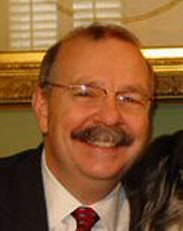
Mark Wilkoff
The only document in the Administrative Record that had any direct bearing on Taleyarkhan was the second one. Moreover, the actual Administrative Record on file at the Office of Naval Research comprised several boxes and several thousand pages of documents.
On Feb. 4, 2009, a day after Wilkoff wrote to Taleyarkhan and advised him of his pending debarment, Moore sent a letter to Purdue President Córdova. Moore’s two-page letter contains numerous errors. He made clear that the entire university’s federal funding was at risk.
“Please note,” Moore wrote, “as an employee of Purdue, the fraudulent acts of Dr. Taleyarkhan can be imputed to the university and could jeopardize the awarding of future federal government grant awards and contracts.”
On May 4, 2009, after an appeal period, Wilkoff debarred Taleyarkhan from federal funding for 28 months.
Inspector General
Behind the scenes, however, according to additional FOIA-obtained documents, Adams had secretly conspired with Tsoukalas, the complainant. In response to the New Energy Times investigation, the Naval Criminal Investigation Service, the Department of Defense Inspector General’s office, and the Naval Inspector General’s office initiated their own investigations.
They determined that Adams had inappropriate communications with Tsoukalas and failed to “remain impartial and objective while conducting oversight” of her investigation. They also determined that Adams had spoken with New Energy Times too candidly.
On April 1, 2009, she was removed from her job as inspector general, placed on administrative leave, and later reassigned within ONR as the FOIA officer.
New Energy Times did not contact Adams for comment on this report because, after she was placed on leave, her employment attorney requested that we no longer contact her.
No Fraud
Despite a number of accusations from Tsoukalas, Tsoukalas’ student Joshua Walter, the journalist Reich, Suslick, Putterman and Putterman’s post-doctoral researcher Brian Naranjo, no investigation has found any evidence that Taleyarkhan had committed any science fraud or any wrongdoing.
Taleyarkhan’s lab has been inspected by a Defense Advanced Research Projects Agency review committee, and his books have been audited by accountants. He has responded to administrative demands to produce material evidence; even fractured glass chambers from long-finished experiments have been taken away for examination. Nothing has turned up against him.
Other people do not agree with Taleyarkhan that the replication was performed independently. He cannot be accused of intending to deceive other people because he, in fact, held and expressed his opinion that Xu and Butt’s replication was independent.
The lack of a clearly independent replication, however, does not negate the validity of his work. Even for his own group, Taleyarkhan’s experiment is often difficult to repeat. It has never been independently replicated. The design and construction of the chamber is challenging, and only a few glassblowers at Oak Ridge National laboratory have been successful at making working test chambers. This is a serious limitation of the experiment and, in the cutthroat world of competition for scarce research funds, provides an easy opportunity for critics to dismiss the credibility of the successful experiments despite the numerous instances of well-measured excess neutrons and excess tritium.
Missing in the broad dialogue surrounding this conflict, and undoubtedly many others like it, is an understanding of the difficulty of replicating pioneering science. A printed paper in a journal is rarely sufficient to transfer the experiential knowledge from the originator of a novel experiment to a replicator.
There is an expansive middle ground from which to view scientific independence. Criteria for evaluating the independence of scientific replications would be useful, and a model is proposed in Appendix B of this report. Based on these criteria, the Xu/Butt replication was very low on the scale of independence.
Nature’s Reporter
Reich wrote her first four articles about Taleyarkhan on March 8, 2006; she wrote another on May 10, 2006, and six more before the end of 2009.
On June 30, 2006, when Taleyarkhan learned of Reich’s forthcoming sixth article about him, he wrote to her editor, Jo Marchant, requesting that she confirm the assignment, and Marchant wrote back.
“Eugenie is an experienced and well-respected news reporter,” Marchant replied, “and by approaching you as part of her research for this story, she is abiding by the conventions of good journalism. I believe that she will do a thorough and objective job, and I would appreciate it very much if you could cooperate with her, so that we can include your side of the story. Please rest assured that her aim and mine is to produce a balanced and accurate news article.”
Climate of Fear
Revankar, one of the professors who had worked with Tsoukalas’ group earlier in 2003, filed a research integrity complaint with the university in June 2007 against Tsoukalas for, among other things, changing the positive tritium data into null results, according to additional FOIA-requested e-mails and documents. Purdue has never said a word in public about that research integrity complaint. According to sources at the school, Purdue did not investigate the data manipulation.
Alvin Solomon, a retired professor from Purdue’s School of Nuclear Engineering, did not think Taleyarkhan had much of a future.
“Eventually, Rusi will be driving a taxi somewhere or commit suicide,” Solomon wrote.
Professors at Purdue have had reason to be wary of the administration.
On March 16, 2013, Eric Weddle, writing for the Lafayette Journal & Courier, revealed evidence of systemic violations of due process for Purdue professors who faced investigations or sanctions for alleged wrongdoings.
Weddle found that Purdue University professors face “crippling legal costs, banishment from campus and a muddled path to appeal. … The cause, they say, is university policies that have limited faculty input and, in some cases, effectively made administrators judge and jury.”
Weddle spoke with Marcus Rogers, president of the Purdue chapter of the American Association of University Professors. Weddle was concerned that the financial incentive for the for-profit law firm Stuart & Branigin was a contributing factor to the troubles that some university professors faced.
For 130 years, Purdue had no in-house legal counsel. Throughout the various Purdue inquiries and investigations Taleyarkhan endured, Purdue’s outside law firm, Stuart & Branigin, directed and advised every administrator and committee member. That changed on Jan. 28, 2013.
Weddle wrote that Rogers hopes that the reduction of the “historic relationship with Stuart & Branigin will create cooler heads when questions or accusations over conduct arise.” Weddle also wrote that Rogers and other people at Purdue “believe that, until now, administrators had too-easy access to lawyers on retainer, which led to undue and costly legal actions against faculty.”
Back in May 2007, Brian Wallheimer, the reporter with Journal & Courier who tracked the Taleyarkhan story closely, began to reveal the school’s problems in his article “Strife Dogs Purdue in Research Allegations.”
Wallheimer stopped reporting on Purdue the following year when the university hired him.
Sally Mason, the former provost for Purdue University, when asked many years ago by the Purdue news service what makes her angry, responded, “People who abuse power, abuse of staff, or the inability to treat students with respect. It leaves an indelible impression when you see it.”
On April 6, 2007, the Chronicle of Higher Education quoted Mason about the turmoil in the School of Nuclear Engineering.
“What you’ve got are really some individuals who, for whatever reason, are pretty unhappy with each other and are going at it tooth and nail. And they really like to use whoever they can as a scapegoat to make a point,” Mason said.
Mason left Purdue three months later.
Taleyarkhan remains a professor in the school; however, Purdue has not rescinded most of its sanctions against him. His research has ground to a halt, and his reputation remains tainted by the accusations of fraud.
[Steven B. Krivit wishes to thank Michael Ravnitzky for research support, Cindy Goldstein for her fine red pen, and Jay R., Gary W., Greg F., Ken K., Christy K. and Ron M. for their helpful critique.]
Appendix A: Names and Affiliations of Sources
(Affiliations are listed according to the time when each person appears in the report.)
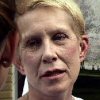 Holly Adams: Inspector General, Office of Naval Research (now FOIA officer at ONR)
Holly Adams: Inspector General, Office of Naval Research (now FOIA officer at ONR)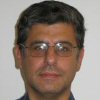 Martin Bertodano: Professor, Purdue University School of Nuclear Engineering
Martin Bertodano: Professor, Purdue University School of Nuclear Engineering Anton Bougaev: Graduate student, Purdue University School of Nuclear Engineering
Anton Bougaev: Graduate student, Purdue University School of Nuclear Engineering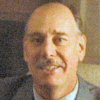 Vincent Bralts: Professor and associate dean of resource planning and management in engineering, Purdue University
Vincent Bralts: Professor and associate dean of resource planning and management in engineering, Purdue University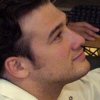 Adam Butt: Graduate student, Purdue University School of Nuclear Engineering
Adam Butt: Graduate student, Purdue University School of Nuclear Engineering Philip Campbell: Editor-in-Chief, Nature
Philip Campbell: Editor-in-Chief, Nature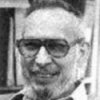 Franklyn Clikeman: Retired professor, Purdue University School of Nuclear Engineering
Franklyn Clikeman: Retired professor, Purdue University School of Nuclear Engineering Kenneth Chang: Reporter, New York Times
Kenneth Chang: Reporter, New York Times JaeSeon Cho: Nuclear engineer, post-doctoral researcher at Oak Ridge National Laboratory (now at FNCS Technology)
JaeSeon Cho: Nuclear engineer, post-doctoral researcher at Oak Ridge National Laboratory (now at FNCS Technology) Chan Choi: Professor, Purdue University School of Nuclear Engineering
Chan Choi: Professor, Purdue University School of Nuclear Engineering Bill Coblenz: Program manager, Defense Advanced Research Projects Agency
Bill Coblenz: Program manager, Defense Advanced Research Projects Agency France A. Córdova: President, Purdue University (now chair of the Board of Regents of the Smithsonian Institution)
France A. Córdova: President, Purdue University (now chair of the Board of Regents of the Smithsonian Institution) Larry Crum: Researcher Professor, University of Washington
Larry Crum: Researcher Professor, University of Washington Tom Downar: Professor, Purdue University School of Nuclear Engineering (now at the University of Michigan)
Tom Downar: Professor, Purdue University School of Nuclear Engineering (now at the University of Michigan) Wylene Dunbar: Chief Executive Officer, Impulse Devices Inc.
Wylene Dunbar: Chief Executive Officer, Impulse Devices Inc.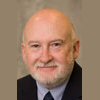 Peter Dunn: Research Integrity Officer, Purdue University
Peter Dunn: Research Integrity Officer, Purdue University Ruth Francis: Head of press office, Nature (now head of Communications at BioMed Central)
Ruth Francis: Head of press office, Nature (now head of Communications at BioMed Central)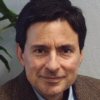 Felipe Gaitan: Chief Scientist, Impulse Devices Inc.
Felipe Gaitan: Chief Scientist, Impulse Devices Inc. Edith Holleman: Staff member, House of Representatives
Edith Holleman: Staff member, House of Representatives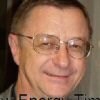 Graham Hubler: Head of Sensor Materials Branch, Naval Research Laboratory
Graham Hubler: Head of Sensor Materials Branch, Naval Research Laboratory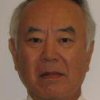 Mamoru Iishi: Professor, Purdue University School of Nuclear Engineering
Mamoru Iishi: Professor, Purdue University School of Nuclear Engineering Martin Jischke: President, Purdue University
Martin Jischke: President, Purdue University Tatjana Jevremovic: Professor, Purdue University School of Nuclear Engineering (now at the University of Utah)
Tatjana Jevremovic: Professor, Purdue University School of Nuclear Engineering (now at the University of Utah)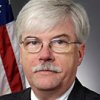 Walter F. Jones: Executive Director, Office of Naval Research
Walter F. Jones: Executive Director, Office of Naval Research Linda Katehi: Dean of Engineering, Purdue University (now chancellor of the University of California, Davis)
Linda Katehi: Dean of Engineering, Purdue University (now chancellor of the University of California, Davis) Daniel Kulp: Editor-in-chief, Physical Review Letters
Daniel Kulp: Editor-in-chief, Physical Review Letters Christine Ladisch: Vice Provost for Academic Affairs, Purdue University
Christine Ladisch: Vice Provost for Academic Affairs, Purdue University Richard Lahey: Professor emeritus and dean of engineering, retired, from Rensselaer Polytechnic Institute
Richard Lahey: Professor emeritus and dean of engineering, retired, from Rensselaer Polytechnic Institute Joseph R. Lapinskas: Student at Purdue University School of Nuclear Engineering
Joseph R. Lapinskas: Student at Purdue University School of Nuclear Engineering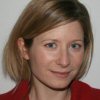 Jo Marchant: Editor, Nature News
Jo Marchant: Editor, Nature News Sally Mason: Provost, Purdue University (now president of University of Iowa)
Sally Mason: Provost, Purdue University (now president of University of Iowa)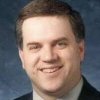 Sean McDeavitt: Professor, Purdue University School of Nuclear Engineering (now at Texas A&M)
Sean McDeavitt: Professor, Purdue University School of Nuclear Engineering (now at Texas A&M)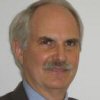 Edward Merritt: Reactor Supervisor, Purdue University School of Nuclear Engineering
Edward Merritt: Reactor Supervisor, Purdue University School of Nuclear Engineering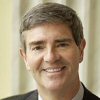 Brad Miller: Congressman and chair of House Committee on Science and Technology’s Subcommittee on Investigations and Oversight
Brad Miller: Congressman and chair of House Committee on Science and Technology’s Subcommittee on Investigations and Oversight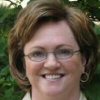 Darla Mize: Former Administrative Assistant to Lefteri Tsoukalas, Head of the Purdue University School of Nuclear Engineering
Darla Mize: Former Administrative Assistant to Lefteri Tsoukalas, Head of the Purdue University School of Nuclear Engineering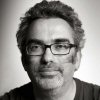 Oliver Morton: Chief news and features editor, Nature
Oliver Morton: Chief news and features editor, Nature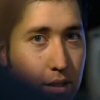 Brian Naranjo: Post-doctoral researcher, University of California, Los Angeles
Brian Naranjo: Post-doctoral researcher, University of California, Los Angeles Jeanne Norberg: Director of News Service, Purdue University
Jeanne Norberg: Director of News Service, Purdue University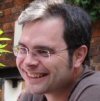 Mark Peplow: Reporter, Nature News
Mark Peplow: Reporter, Nature News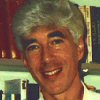 Seth Putterman: Professor, University of California, Los Angeles, Physics and Astronomy
Seth Putterman: Professor, University of California, Los Angeles, Physics and Astronomy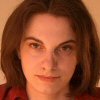 Eugenie Reich: Freelance reporter who worked for Nature
Eugenie Reich: Freelance reporter who worked for Nature Shripad Revankar: Professor, Purdue University School of Nuclear Engineering
Shripad Revankar: Professor, Purdue University School of Nuclear Engineering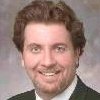 Marcus Rogers: President, Purdue University chapter of American Association of University Professors
Marcus Rogers: President, Purdue University chapter of American Association of University Professors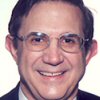 Charles O. Rutledge: Vice President for Research, Purdue University
Charles O. Rutledge: Vice President for Research, Purdue University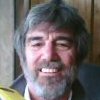 Michael Saltmarsh: Physicist, retired from Oak Ridge National Laboratory
Michael Saltmarsh: Physicist, retired from Oak Ridge National Laboratory Peter Schmidt: Program Manager, Office of Naval Research
Peter Schmidt: Program Manager, Office of Naval Research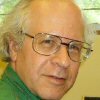 Dan Shapira: Physicist, retired from Oak Ridge National Laboratory
Dan Shapira: Physicist, retired from Oak Ridge National Laboratory Alvin Solomon: Retired professor, Purdue University School of Nuclear Engineering
Alvin Solomon: Retired professor, Purdue University School of Nuclear Engineering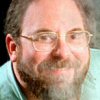 Kenneth Suslick: Professor, University of Illinois School of Chemical Sciences
Kenneth Suslick: Professor, University of Illinois School of Chemical Sciences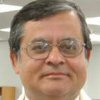 Rusi Taleyarkhan: Professor, Purdue University School of Nuclear Engineering (formerly at Oak Ridge National Laboratory)
Rusi Taleyarkhan: Professor, Purdue University School of Nuclear Engineering (formerly at Oak Ridge National Laboratory) Ross Tessien: President, Impulse Devices Inc.
Ross Tessien: President, Impulse Devices Inc.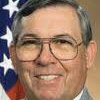 Tony Tether: Head, Defense Advanced Research Projects Agency
Tony Tether: Head, Defense Advanced Research Projects Agency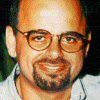 Lefteri Tsoukalas: Professor, Purdue University School of Nuclear Engineering (formerly head of the school)
Lefteri Tsoukalas: Professor, Purdue University School of Nuclear Engineering (formerly head of the school) Nick Tsoulfanidis: Editor, Nuclear Technology
Nick Tsoulfanidis: Editor, Nuclear Technology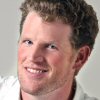 Erik Vance: Reporter, Chronicle of Higher Education
Erik Vance: Reporter, Chronicle of Higher Education Emil Venere: News writer, Purdue News Service
Emil Venere: News writer, Purdue News Service Karen Vierow: Professor, Purdue University School of Nuclear Engineering (now at Texas A&M)
Karen Vierow: Professor, Purdue University School of Nuclear Engineering (now at Texas A&M) Brian Wallheimer: Reporter, Lafayette Journal & Courier (now at Purdue News Service)
Brian Wallheimer: Reporter, Lafayette Journal & Courier (now at Purdue News Service)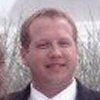 Joshua Walter: Graduate student, Purdue University School of Nuclear Engineering (now at TerraPower)
Joshua Walter: Graduate student, Purdue University School of Nuclear Engineering (now at TerraPower)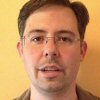 Eric Weddle: Reporter, Lafayette Journal & Courier
Eric Weddle: Reporter, Lafayette Journal & Courier Mark Wilkoff: Suspending and Debarment Officer, U.S. Navy
Mark Wilkoff: Suspending and Debarment Officer, U.S. Navy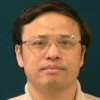 Yiban Xu: Post-doctoral researcher, Purdue University School of Nuclear Engineering
Yiban Xu: Post-doctoral researcher, Purdue University School of Nuclear Engineering
Appendix B: Criteria for Evaluating the Independence of Scientific Replications*
By Steven B. Krivit
(9-10) HIGHEST INDEPENDENCE
Replicator receives no personal guidance from originator.
No tools or materials are provided to replicator by originator.
Originator and replicator never enter each other’s laboratory/work area.
(7-8) HIGH INDEPENDENCE
Replicator may receive some personal guidance from originator.
Some tools or materials may be provided to replicator by originator.
Originator and replicator never enter each other’s laboratory/work area.
(4-6) MODERATE INDEPENDENCE
Replicator may receive some personal guidance from originator.
Some tools or materials may be provided to replicator by originator.
Originator never enters replicator’s laboratory/work area.
Replicator may enter originator’s laboratory/work area.
(1-3) LOW INDEPENDENCE
Replicator may receive some personal guidance from originator.
Some tools or materials may be provided to replicator by originator.
Replicator may perform the work in originator’s laboratory.
Originator has no hands-on involvement in experiment, analysis or preparation of results.
* Published online first on January 10, 2007, New Energy Times Issue #20

